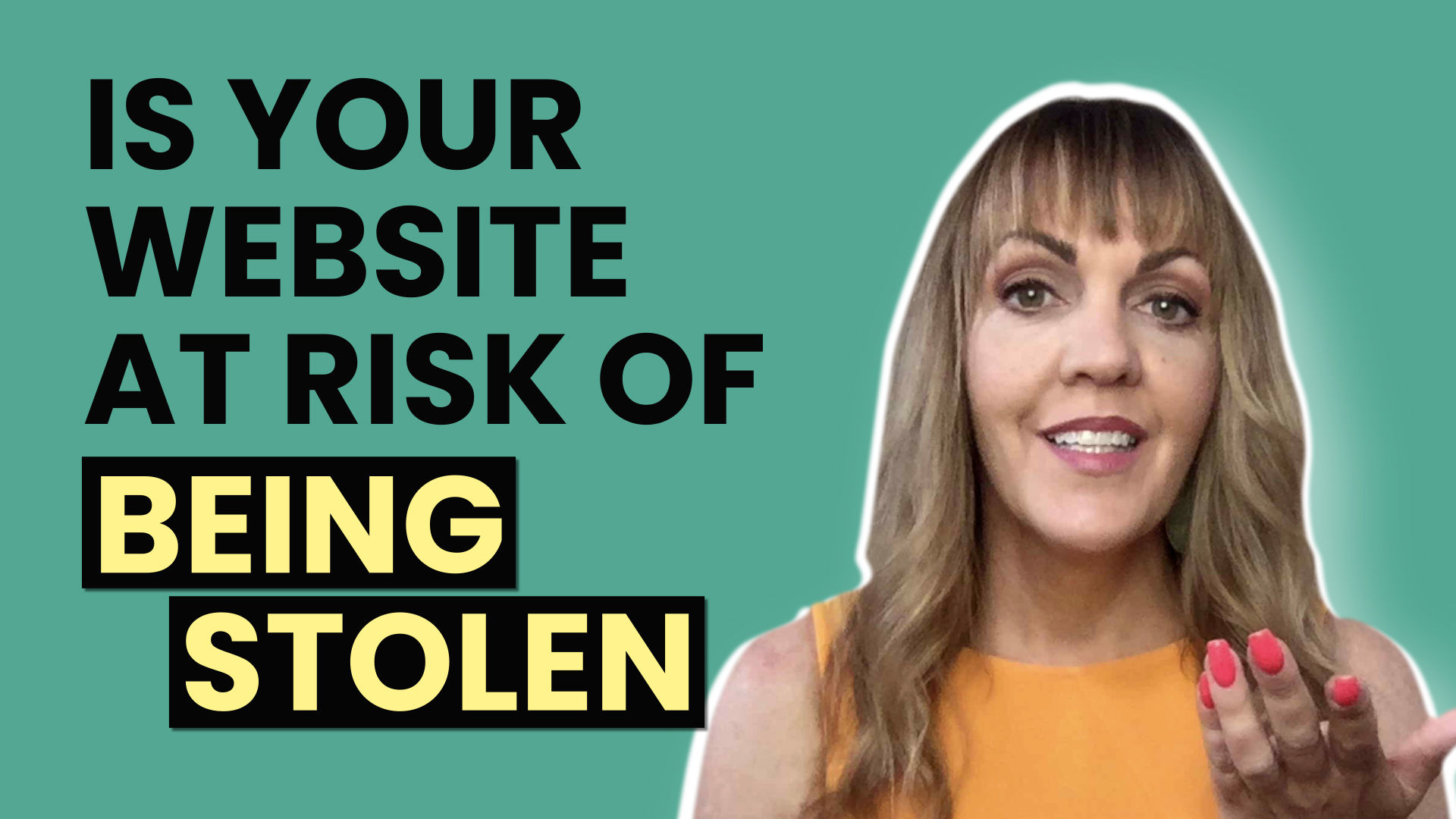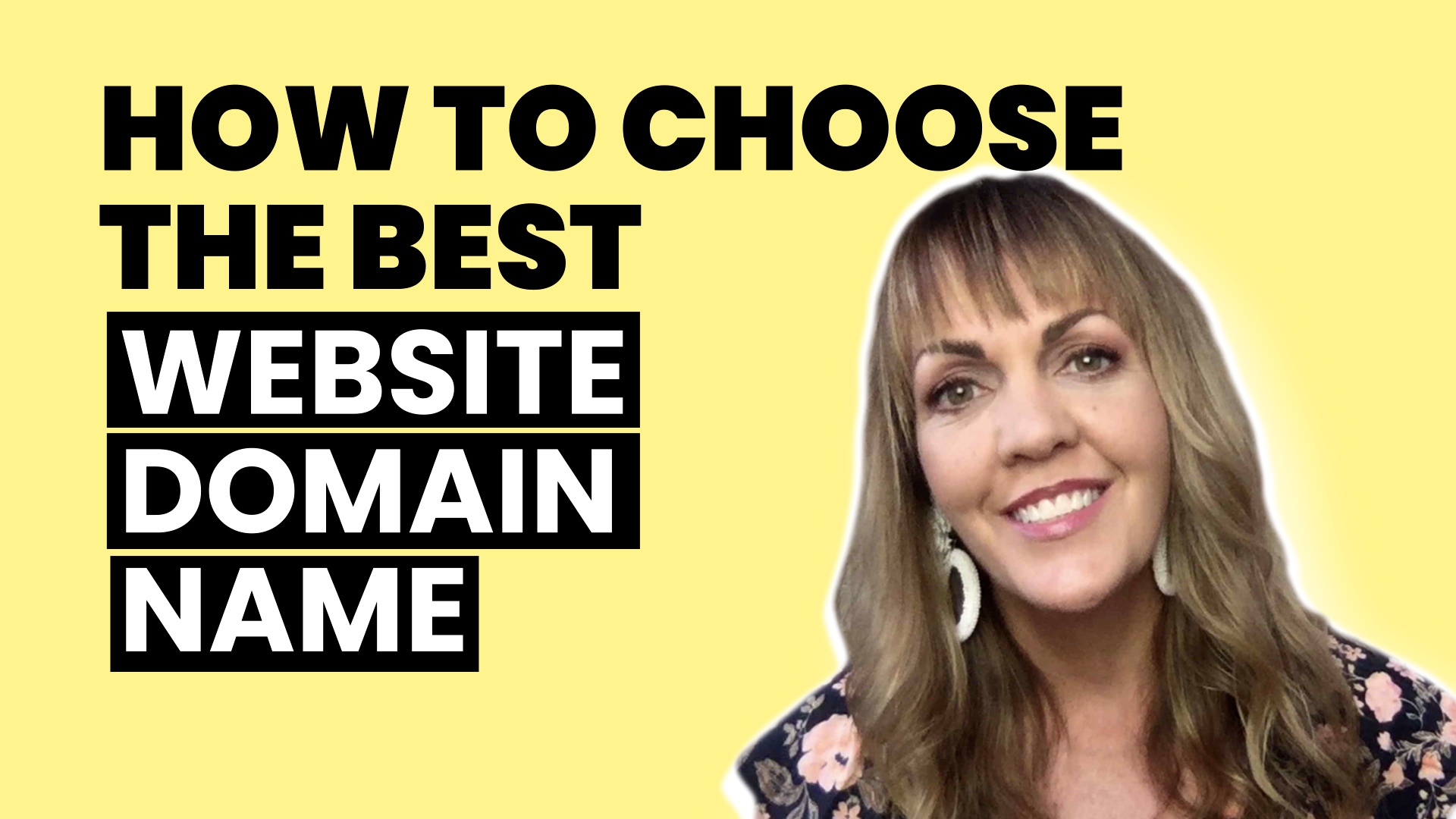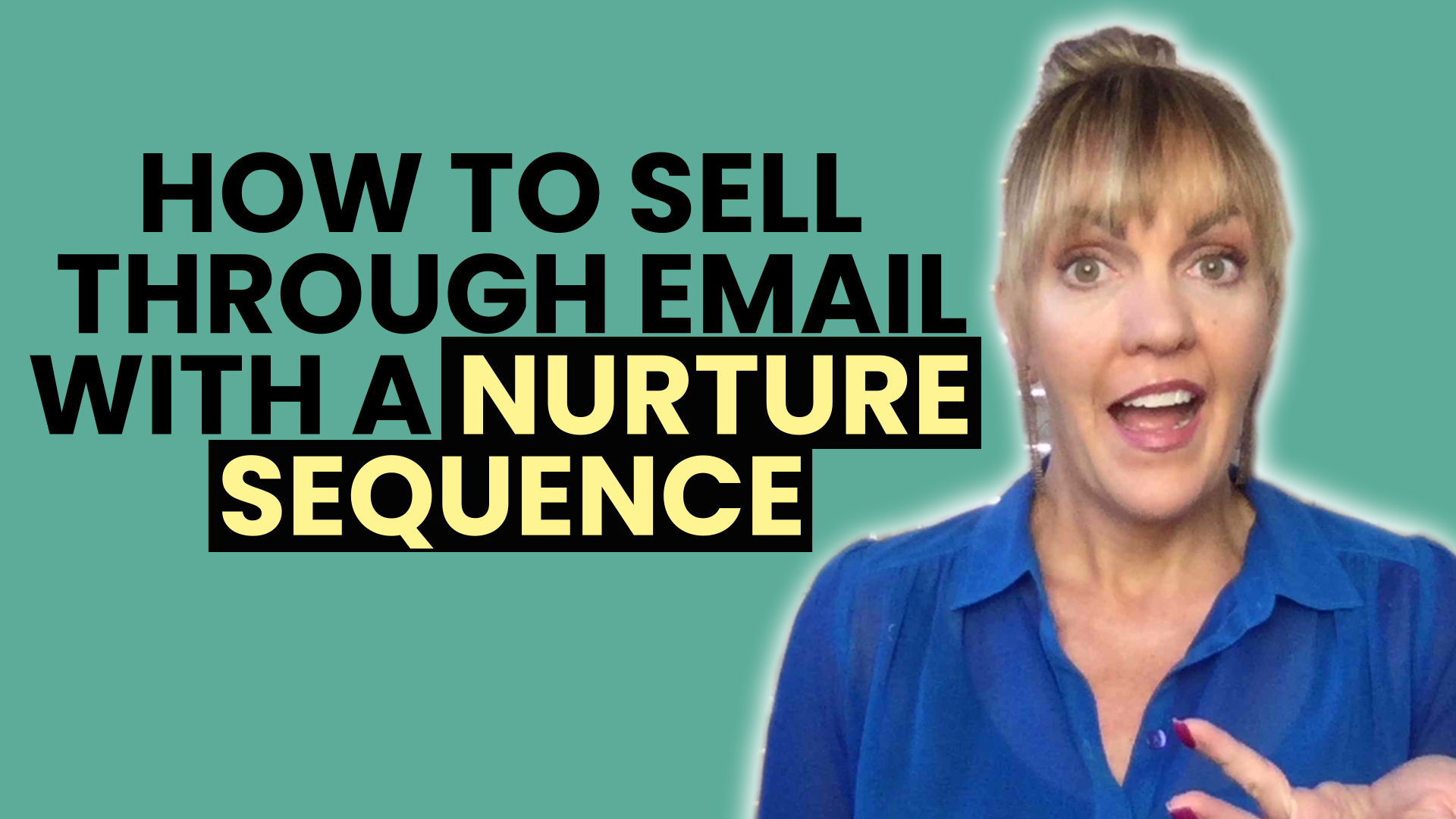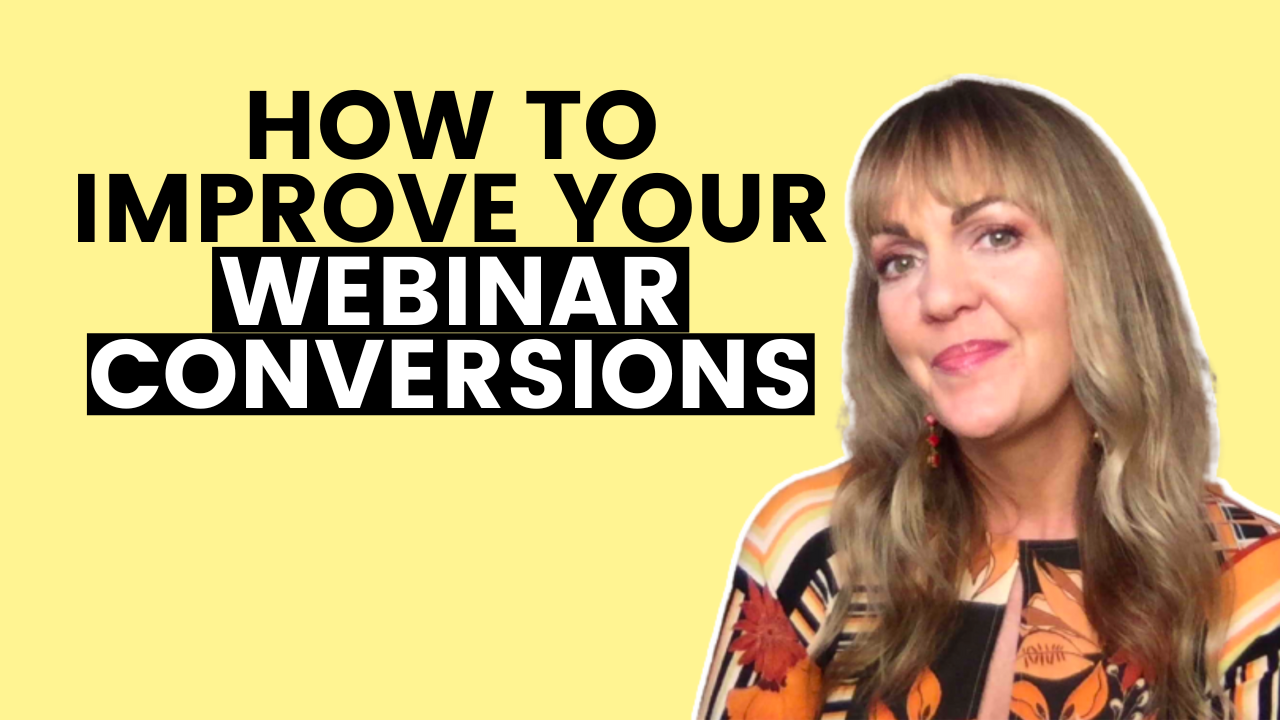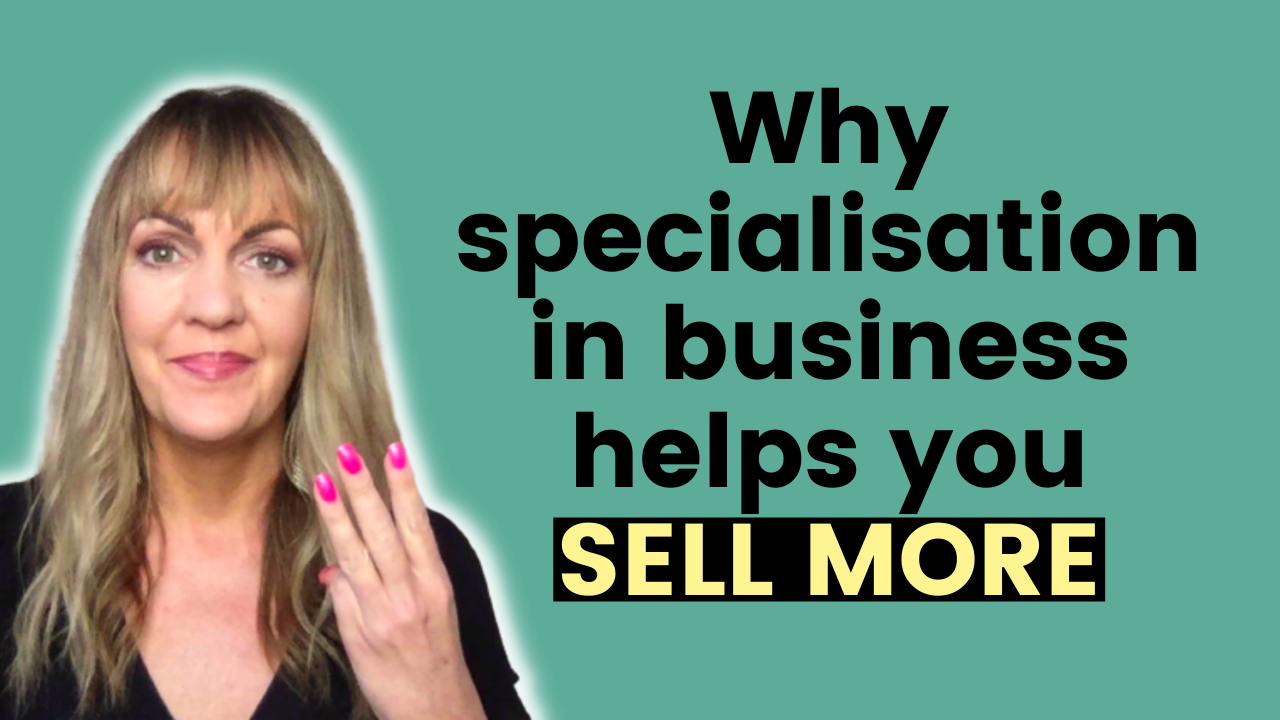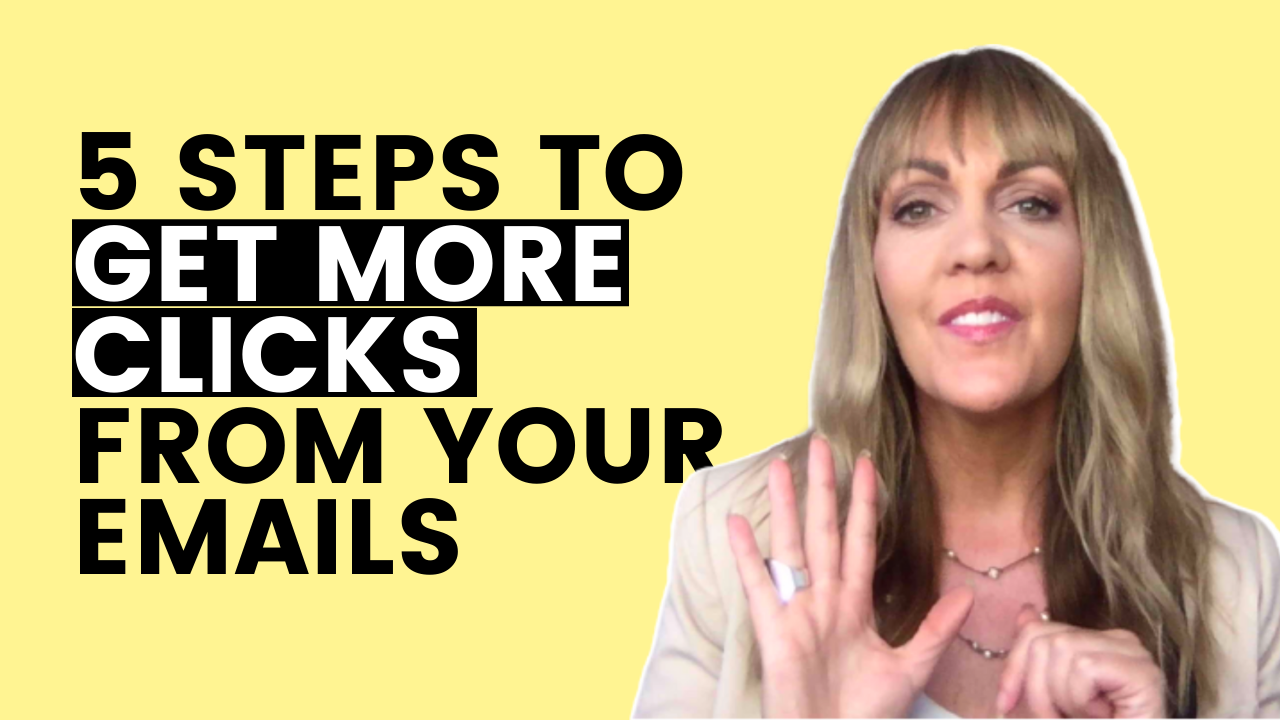Episode 101 Transcript
Heather (00:03.74)
Jenny, welcome to the show. I am very honored and very excited to have this conversation with you. How are you?
Jenny (00:10.015)
Thank you Heather, I'm fabulous. I'm feeling very fabulous and I'm delighted to be here. I'm looking forward to it.
Heather (00:16.508)
Where are you based, by the way?
Jenny (00:18.495)
that's one of the reasons I'm feeling a bit more fabulous today. It's I'm in Melbourne down on the Mornington Peninsula and it's been we had a late run at summer so it's been really hot and today hence my layers. It's it's cold again but that's Melbourne.
Heather (00:36.572)
Absolutely, yes it is and you are in a beautiful place in the world. So that's great. Good. Okay. So guys, as you know, my dear listeners, as we start this show, you will get to know Jenny as we go. You'll get to know her journey and how she helps clients and some of her incredible strategies. But I always like to start with three tangible tips. And I couldn't think of anyone, I guess, more perfect to give these tips based on your backstory, which we'll get to know. But if you can think of...
when you're growing a business, it can be yours or your clients. You go through these incredible moments of overwhelm and stress, which is normal and natural, but how do you get through them? What are three tips that you recommend to get through these moments?
Jenny (01:20.575)
Okay. The first one is focus. And it's all about when you're overwhelmed and you're trying to do a million things and feeling frustrated because you don't know what to do next. The big thing is focus. And when you look at your clients, it's which clients do you need to focus on? You know, who should be, who should you be looking after and really focusing on? It's not about everybody. It's about...
your ideal clients, which product or service, and we can all get really creative and excited about new service offerings and what can we do, and we could do this, and we could offer that, but you've just got to pull yourself back and go, if I'm feeling overwhelmed, what do I need to focus on? What's our core offering? And then the other aspect to focus would be what I call best fit marketing. So don't try and do everything. Don't get overwhelmed with thoughts of, oh my God, I haven't got all this under control. Just...
Heather (01:52.188)
Mmm.
Jenny (02:19.039)
Just one thing, it might be Instagram, if that's appropriate for your business. It might be recording videos, if that's something that really works for you. It might be posting on LinkedIn, but just focus on your best fit marketing activity. And the second thing would be fees, because that can become very overwhelming when you're trying to chase clients and cash and money.
So just really know your numbers and focus on your fees. And the third thing is relationships. You know, that's what it all gets down to, doesn't it? So just, you know, stay in touch with people. Don't forget your relationships.
Heather (02:51.352)
Yeah.
Heather (02:58.652)
Really good advice. I want to dive deeper into one of those to start with, and that's the best fit marketing. Even some of the, you know, seven figure businesses that I speak to, they'll come to me because of my background in marketing and say, should I be doing this or this or this? Cause it seems like everyone else is doing it. How would you even start with somebody to help them know where they should be marketing?
Jenny (03:23.487)
Wow that's a great question. It's a big question um and I do get asked that question occasionally and it gets back to well what are we trying to achieve? Like the I mean you know it's the the fundamentals of marketing. What's our core market? Who are we trying to reach? What's our value proposition? You know where do we really add value? What plane should we be in?
Heather (03:26.652)
You
Heather (03:34.844)
Mm.
Jenny (03:48.863)
and what are the messages that we want to get out there and how are we going to reach that target market. So if your market is primarily on LinkedIn, well don't go off at a tangent on Facebook and Instagram. If you've got a creative business then Instagram is your space. You know and it goes back to what I said before about just focus on the one thing to start with but know who you're trying to reach and where they are.
Heather (04:04.108)
Yeah.
Jenny (04:18.495)
and what's the best way to get your messages to those people. That's just the foundations. And then when it comes to the execution, well, that's, you know, someone like you can provide the expertise there. But again, it's just knowing your strategy and where to focus.
Heather (04:36.476)
just love that answer. So thank you because that's something that you know everyone's out there looking at everyone else's marketing and positioning and trying to do that comparisonitis and that I should just copy them. But yeah, no, so good that you said that. So relationships want to talk about that because definitely in times of scale and growth and even in just difficult times in life in general you can sometimes forget that you can rely on people or that you have a community.
Jenny (04:48.447)
with.
Heather (05:04.412)
around you and you can go kind of inside and hang out there a little bit too long. Do you have any tips on maintaining relationships or growing relationships? Yeah.
Jenny (05:17.375)
That's a good question. I think first of all you've just got to somehow remind yourself that you have relationships and not to forget them. You know I've spoken to a few clients just in the last week who are talking about growth strategies for their business and when we look back at all their clients and all the people who've referred business to them and the people they've got really great relationships with and they're like oh I've
been so busy trying to build the business I've actually forgotten about the relationships and they focused on things like the marketing and the doing and the you know all of that and it's like well just stop you've got to get out there and just who are the people who've referred you business who are the people that you you know have a great relationship with and you haven't seen them for a while who are the clients that need a bit of love that you've been neglecting and if it's as simple as
Heather (05:50.792)
Yeah.
Jenny (06:15.327)
taking an hour to sit down and really have a look at that and write a list and say well okay well the next week I'm going to get in touch with these people the next month. It's not that hard it just takes some time to remember that business is about relationships and we can't neglect them.
Heather (06:19.196)
Yeah, and thank you for sharing that because I know just with my business growth, the referral partners in my community, my partnerships are everything to me. And it's why I even started this podcast because I was going through a period of
Jenny (06:43.327)
you
Heather (06:48.284)
bit of growth and a bit of stress. And I thought, do you know what? I'm going to actually hold myself accountable to handpick extraordinarily extraordinary people that I can have interviews with and expand my relationships as well. Um, so however that looks to hold you guys, the selves accountable to your, your relationship growth in your community. Uh, for me, it was a podcast and a few other things that I've scheduled into my calendar, but yeah, I I'm on board with that so much and that advice. So thank you. All right, we're moving on.
Jenny (07:09.867)
Yeah.
Heather (07:17.852)
And so you said you work with clients. So naturally now we have to talk about what you actually do and you have a really incredible journey to be what you're doing now in sort of the coaching space. So talk to me about where you started. Cause I think I read that you've been a CEO as well. So you've quite the journey. So tell me a little bit more about your professional journey.
Jenny (07:34.915)
Okay. I'm just thinking, you know, this makes me sound a thousand years old, but I did a double degree, didn't use a computer while I did my double degree because nobody did back then. Well, they did, but not, I didn't need to. And I ended up working for a software company in...
Heather (07:41.692)
You
Heather (07:53.082)
Mm -mm.
Jenny (08:00.799)
as a sort of a trainee, graduate trainee, got into the sales and marketing stream and, you know, developed my career predominantly through that. And yeah, ended up in CEO role. Before then, I started a marketing consultancy because I didn't like my job and there weren't any other available opportunities. It was a recession.
Heather (08:19.676)
Okay.
Jenny (08:27.487)
So I thought, well, what else do you do? You go and start a marketing consultancy without any background, never having run a business, no clients to start it with. Let's do that in a recession. So I did that. And I was seeing that at the other day and I don't know whether it's just, you know, you have confidence or you don't, you haven't made those mistakes. So you don't really know what you're walking into.
Heather (08:31.32)
I love it.
Heather (08:51.354)
Mmm.
Jenny (08:51.391)
And I'm glad I didn't because, you know, I did it for five years. It was great. And I managed to build a really good client base. And then I wasn't quite finished with my corporate career and I ended up as a CEO of a publicly listed company. And it was a leading company in the market and it was the dot com boom. So it was a very crazy time, you know, the board trying to turn us into something we weren't and.
Heather (09:08.224)
Yeah.
Jenny (09:20.767)
looking at propositions from companies every day who wanted to be acquired by us and wanted us to invest in them. So I learned a huge amount during that time and it was a great experience. And then after that, I started my own consultancy business, advising CEOs of sort of seven and eight figure companies. And then I guess over the course of many years doing that at different times, I ended up
Heather (09:21.088)
Uh -huh.
Jenny (09:50.955)
stepping into one client's company as CEO, because he'd had a health scare. And I did that for 12 months. That was a completely different business. It was a family business and it was in a different space. So again, it was good experience, new experience. And then in more recent times, I ended up stepping into a client's, well, two companies and the second one needed
some real help and a real turnaround. And I ended up, I thought I'd be there for a few months, it was five years. And so I got through the first year of COVID and I said, okay, that's it. I'm out, I wanna go back to doing my own thing. So I've had really unusual experience, I guess, having a corporate career, having CEO roles, running other people's companies, building my own practices. So I understand.
Heather (10:25.888)
Oh my goodness.
Heather (10:35.804)
Open.
Jenny (10:48.415)
that perspective from both sides. So that's what I do now. I help my clients get through those, I guess, the challenges when they get to a certain stage in their growth and they've really got to become a more professionally structured and organized company to take it to the next level.
Heather (11:01.508)
Yeah, and you have that incredible diverse background, both as a CEO for others and as a founder yourself. So that's quite, I would say it's quite rare based on just my conversations I've had in the past. So it's quite a gift to know what you're talking about and actually walk the talk in that space. Yeah.
Jenny (11:22.495)
Mm, yeah.
Heather (11:23.836)
I'm curious between being a CEO for others, businesses, and then your own practice. What's different around, around, you know, big .com growing company and growing your own business. What's different between the two, the main distinctions, if any. Aha. Yeah.
Jenny (11:39.889)
Accountability. I think that's the first thing. You know, and you have to be you have to be diplomatic as well. You've got a board of directors and you've got shareholders and all sorts of stakeholders and investors. So you've got to be able to certainly in that particular instance, trade a very diplomatic line. And also it's a little bit like working in a fishbowl, like everyone knows.
Heather (12:00.624)
Yeah.
Jenny (12:09.027)
everything and you're accountable for everything which is fine but it's it's there's a big onus. When you're running someone else's company that's a private company there's still that accountability you know you have to make every decision as if it were your own business and you've got to be respectful and diplomatic but still be able to run the company as you think it needs to be run. And then building your own business do whatever you want.
Heather (12:19.756)
Yeah.
Heather (12:33.436)
Yep.
Jenny (12:38.367)
But that's, I think, when some of us lose our focus. Because we get so excited about all the things we could be doing and we're not accountable to anyone. And I think unless you've had that more corporate, more structured experience, it can take a while to get to that point. So, you know, that's why a lot of clients say to me, oh, you know, I built the business to here, but I don't know.
Heather (12:40.868)
Absolutely.
Heather (12:56.588)
Yeah. Yeah.
Jenny (13:05.055)
I haven't been in that space before and that's fine. I mean, it's a whole skill set to be able to build a company from scratch up to low seven figures. So yeah, that would be the main difference I think.
Heather (13:18.326)
Yeah, just curious. So you've written a book, The 7 % Club, which I love the name of that. Talk to me a little bit about the title and what that means.
Jenny (13:32.511)
was really interesting. I was writing a book around strategy and challenges of growth and I was doing some research and I found these stats that said only seven percent of companies grow beyond two million in turnover and I just thought that doesn't seem right. I mean it was professional statistics so it wasn't some person just throwing it out there and I thought I wonder what it's like in the US and UK.
Heather (13:41.852)
Mm.
Heather (13:56.092)
Yeah.
Jenny (14:02.639)
And it was comparable. And it was really amazing. And it seems to be a, I don't know, a pattern, a universal pattern. And I thought it was a really interesting, an interesting title because it is surprising. But also anyone who grows a business, you know, you get to the high six figures and we can see is that million dollar mark.
just want to get there. And then of course once you've hit one, the next logical focus point is to me. And that's a really big challenge and a lot of things can fall over and go pear shaped and you can lose energy, lose focus, lose desire. And so that, I just thought it was a really great topic for the book and yeah, to explore those challenges.
Heather (14:56.636)
Yeah. So do you help your clients now? Do you help them get past that two mil turnover? Is that the main outcome? Yeah. Yeah.
Jenny (15:09.175)
guess that's where all my other experience comes in. Um helping them just get that focus, get that structure in place, get the team around them. Um get the strategic direction right. Um which is what I love doing. Um so yeah I just work with work with companies now in that space who are at that stage who want the help. It's fantastic.
Heather (15:20.752)
Yeah.
Heather (15:38.04)
I can tell. Yeah, it's, yeah, great. And I do, I just love, love the title. Um, I just love, you know, actual honest stats backed up with facts and, and you have your formula to, to get people to get where they want to be. And I want to talk a little bit about a formula and how you work with your clients. So if you could think of a, a person, a business, a case study, happy for you to say the name, not say the name up to you.
Jenny (15:38.659)
I love it.
Heather (16:07.516)
But talk to us about the before and the after when they came to you and what specifically did you do? What were the steps that you took with them?
Jenny (16:13.467)
Okay. I, and this is where you and I are in alignment. I always say better strategy, better business, better life. Because what's the point of having your own business if it's going to not produce a better life and you're going to be stressed and you're going to be unwell and all those things. So when my clients are in that state of overwhelm or confusion or even at a crossroads, I...
Heather (16:21.992)
Yes.
Heather (16:29.54)
Yes.
Jenny (16:40.867)
Always look at the numbers first because the numbers tell the story of what's going on and what's working, what's not working. I always start there. And heaps of my clients hate numbers. They hate that part of it, but I have to go there with them because that gives us the, okay, well, what do we need to do now? So we look at that. I look at the structure of the business, you know, the team that they work with.
Heather (17:03.492)
Okay. Mm!
Jenny (17:11.171)
what I call the capability gap between the owner of the company and the next level down is that two bigger gap. And that's, that's prevalent a lot of the time. So they might have someone in their business that was there with them from the beginning. You know, that person might've come in to help out on an ad hoc basis. And they end up with a title like operations manager or office manager.
And so that person's like, Oh my God, how did I get here? I don't want to do this. And then the owner of the business thinks, well, I can't get rid of them. They've become my friend. They've been here for, you know, X amount of years. And, and that's when there's often a huge gap. So that's when the owner puts on more people, but they're quite junior because junior people cost less. And then they say, well, I don't know why I'm putting all these people on. I'm still doing just as much work myself. So looking at things like that is a huge.
Heather (17:42.364)
Yeah.
Jenny (18:07.939)
it's a huge shift for the owner of the business and then for the business itself. So look at all those things about simplifying and putting in the structure and then looking at the role of the owner of the company and getting them to step up from being the business owner to actually being the leader. That's a huge thing. And then once they get to that point,
and they have a team that's effectively running the business day to day, that's when they can be more strategic. So then we look at that part. So that's, it's not necessarily sequential. We start where they need to start and move forward from there. But that's basically what we go through.
Heather (18:51.644)
That's why you start with the numbers so you can see what's going on. Yeah. What's um, it's really, yeah, it's really interesting this whole capability gap that you're talking about because it's something that I come up against as well just in my own business. And it's a tricky one where you are looking at, like you're saying juniors versus more senior roles. I want to talk a little bit about cashflow because obviously that's a tricky thing to manage as you go through these, these different.
steps in your business. What do you do to help your clients improve their cash flow or even understand it better?
Jenny (19:29.347)
Yeah, great question.
Jenny (19:34.893)
I guess the first thing is to really understand, I have to understand the numbers. They really do. You know, I have conversations about things like margin and profit and...
it's clear to me that people don't really understand all of that. So once we look at that, then we also look at pricing and fees and terms, you know, so if your clients aren't paying you for three months, we need to address that. If you're paying everything in seven days, you know, it's going to affect your cashflow. So that's just an education process. But particularly what you mentioned then, that's a really good question because people...
will often say, how do we know when we can afford that next person or who do we put on next or how do I know if we're going to lose money and there's that whole fear around that. And again, it's not a science, it's a bit of gut feeling and a bit of doing the numbers. But...
Heather (20:22.372)
Yes.
Heather (20:36.924)
you
Jenny (20:39.491)
you need to be able to project out your revenue. So if you've got clients on a retainer basis, for example, obviously that's a given to a point. You might have some tender submissions out there that you expect might come in. So you can start to put some forecasting around your income. And then with that, you look at the expense of those people, maybe a junior person, maybe a more senior person.
and say, okay, well, what are they going to cost us each month? And when is it likely that we can get that person on board in line with our sales projections that it's not going to impact our bottom line. So it's a process. It's a real process of just hoping you get those light bulb moments where they go, oh, okay. Or you give them some tools, some ratios and they go, oh, oh, that's really helpful.
Heather (21:10.78)
Yeah.
Jenny (21:38.851)
So yeah, they're the sorts of things that we look at. And the goal is obviously to get the better people on board, because that's going to free them up to do more of what they are really good at.
Heather (21:51.9)
With your clients, do you find that most of them are already seven figure, trying to go multi seven figure or they high six figure? What would be your medium?
Jenny (22:05.039)
low seven figures wanting to grow. Yeah.
Heather (22:06.788)
Mm hmm. Wanting to grow. What's the main difference from somebody that say turning over one or two million a year to somebody that is getting close to the 10 mil.
Jenny (22:18.147)
Oh, completely different. Completely different. The one that's close to the 10 mil mark, especially if they work with me, you know, they do they get to the point where that they are more structured. They have, you know, their team is very structured. They all know what their roles are. They all have accountability. They get on and do what they have to do. The
Heather (22:41.18)
Yeah.
Jenny (22:47.903)
CEO does not have to be involved in the day -to -day at all. You know, obviously the CEO or the leader has their role to play, but it's certainly not in the day -to -day. They run their numbers, they run dashboards. It's more of a well -oiled machine, you know, have regular strategic focus. Their processes are better, they've got risk management in place. You know, they've got all their proper legal and commercial structures in place.
That's what you get at that end of the scale, not at the low seven fingers.
Heather (23:24.796)
I almost wanted to paint the light at the end of the tunnel for people listening. Cause to me that sounds really wonderful. I mean, to really step into leadership role and a strategy role, which I think a lot of business owners ultimately want to, you know, more than me and that from your working with your clients. But would you say that that's the end game? It's like, yes, you can have time and freedom and, and literally be helicopter role to manage lead, share your vision and inspire your team.
Jenny (23:53.899)
Absolutely and I think going back to what you asked me before which maybe I didn't answer but that's that's the journey I take my clients on so they have you know that's the transformation they go from that being in the thick of it to having more time and it's all about it's about freedom it's about choice it's about doing what you love and it's not necessarily about retirement at all you know.
Heather (24:02.204)
Yeah.
Jenny (24:23.339)
some of them might want to sell, but then they invariably go and create another business knowing what they know from the first one. So it is, it's about giving them that transformation toward freedom and choice and a better life. That's it.
Heather (24:39.74)
So good. Where do you feel simplification fits into things when you're growing a business?
Jenny (24:47.595)
as in when do you start to do it or where in the company.
Heather (24:50.652)
When and where, yeah, if you were to simplify anything, systems, processes, offers, what you sell, is there a role for simplifying things and when would that fit into your growth?
Jenny (25:01.705)
Absolutely, yes. I think once you, there are some core processes that simplify. You know, once you've built a stable of clients, say, then that whole client onboarding and engagement process can be simplified.
that improved and made better. So you look at it from the client perspective, but then you also look at it from the back end, from inside the business. What are we doing? And just, just simplify, just make sure everyone knows what to do. The system is in place, the automation is in place, whatever it is, because that's consistent across every business, that customer engagement part. Recruiting people, that's a simple thing to simplify.
you know, and that has a distinct end to end process and it varies from company to company. But when you're at that point that you are recruiting people, make that a process and that simplifies it. So I think whenever you're at the point of starting to do something more frequently, whether it's looking at financials or getting new clients or onboarding new team members,
Heather (26:12.412)
Yeah.
Jenny (26:24.419)
or looking at the end -to -end process of what you deliver, whether you design websites or you provide legal advice, that's where simplification helps new people coming on board because they get where they sit in the process. And once it's done, it needs to be reviewed, but it doesn't need to be micromanaged. And it can improve cost efficiencies. So I'd say...
Heather (26:26.428)
you
Jenny (26:53.827)
as early as you need to and just look at the core areas. They'll make a big difference.
Heather (27:00.732)
Yeah, I had a feeling you were going to say that. Thank you. So I'm curious now for you and your business and where you're headed. What is the name of your business that you have?
Jenny (27:14.173)
My company's Hanby Park Consulting. My business is Jenny Stillwell. That's my brand.
Heather (27:19.42)
And where are you headed with that in the future? What are your plans to do next?
Jenny (27:23.907)
Well, I want to write more business books. I want to work with clients I love working with and I like working one -on -one and giving my clients a bigger experience. So bringing my clients together, introducing them. Some of my clients don't, well, a lot of them actually don't have access to peer.
Heather (27:28.764)
Yep.
Heather (27:54.364)
Okay. Wow.
Jenny (27:54.627)
and take that for them and we might do a strategic retreat or we do a lunch or you know that kind of thing. So I give them that connection that they would normally have and that's what I love doing. That's what I really love doing and that's what I want to keep doing. Yeah and write some more books and just keep enjoying what I'm what I'm doing now. Yeah.
Heather (27:59.866)
Yeah.
Heather (28:07.9)
Yep.
Heather (28:22.844)
What's your next book? Do you know yet?
Hahaha!
Jenny (28:26.723)
Um I do. I do. I haven't got a title and I haven't um I haven't mapped it out yet but I know I know what it's going to be and it's probably going to help um those maybe high six figures, low seven figures with that um that next level of revenue growth that everyone seems to be looking for. But in a of course.
Heather (28:38.332)
Right.
Jenny (28:55.915)
structured and strategic way.
Heather (28:59.612)
Brilliant. Love it. Can't wait to know when it comes out. That'll be amazing. And clients that you're taking on who would be your ideal client if you wanted to have more clients that you love.
Jenny (29:03.875)
I'm sorry.
Jenny (29:14.099)
Those who want to get into the 7 % club, so the low seven figures, I love working with service businesses and B2B.
Heather (29:23.292)
Yeah, nice. Perfect. Now, where can people learn more about you, Jenny? Where do they go and find out all the amazing things that you're up to?
Jenny (29:34.147)
They can visit my website, jennistillwell .com .au with one L in the middle and two on the end, or connect with me on LinkedIn. Yeah, DM me, start a conversation, and pretty much between those two, it's all there. There's lots of resources on the website, the podcast, the blog, or just get in touch one on one.
Heather (29:58.3)
I wanted to point out two things. So the first thing, yes, definitely podcasts. What's the name of your podcast?
Jenny (30:04.129)
The 7 -Eleven Club.
Heather (30:05.724)
There you go. Perfect. You guys, you have another new podcast you can go and listen to. Love that. And you are giving our listeners a strategy guide as well, which we'll put in the show notes. Talk to me about that. What's the strategy guide that you have?
Jenny (30:19.267)
It's, I guess it's not a cheat sheet, but it's a simple way to start approaching strategy, as in having that strategic focus I talked about in the beginning. So not doing the big all singing, all dancing thing, but just if you want to just start to get that focus, to get that strategic perspective, here are some different ways to approach it. Really simple, easy to follow.
Heather (30:32.188)
Yes.
Heather (30:47.356)
Really smart. And just my history being an entrepreneur and being around loads of business owners in the past as well, we all get caught up in the shiny object syndrome all the time. So having some clear focus and some guidance in that area is really smart. So guys, you should take her up on that and go check out her guide. Again, there's a link in our show notes for that. So definitely check that out. As we start to wrap up.
Are there any last words of advice or wisdom that you'd like to share for anyone right now that's growing their business and they're feeling a little lost, a little scared, a little overwhelmed on what to do next?
Jenny (31:25.635)
If you want some advice, it's not gonna cost you a lot of money, you can always go and read my book. Or also on the website, I recorded the book as a series of podcast episodes. All you have to do is sign up for that and you can download that. And I think the important thing is to know that people think, you know, we all think we're making mistakes or we're not very good at what we're doing or am I really cut out for this or.
Heather (31:41.628)
Thanks.
Jenny (31:54.819)
I'm losing the passion for my business. We all feel like that at some point and it's just a matter of reconnecting with what really lights you up, what you love doing, that thing in your business you love doing and try and focus on that as you're in game. And if you focus on that, you'll get through. Because we've all been through it, haven't we? We've all been through it.
Heather (32:23.076)
Absolutely. Yeah. Well, thank you. Thank you so much for your advice and your stories and what you have offered on this episode. Been very appreciative of having you here and sharing your time with us. So thanks again, Jenny.
Jenny (32:24.385)
Yeah.
Jenny (32:38.307)
Fantastic. Thank you so much Heather. It's been really great talking to you.
Heather (32:41.82)
Thank you.
